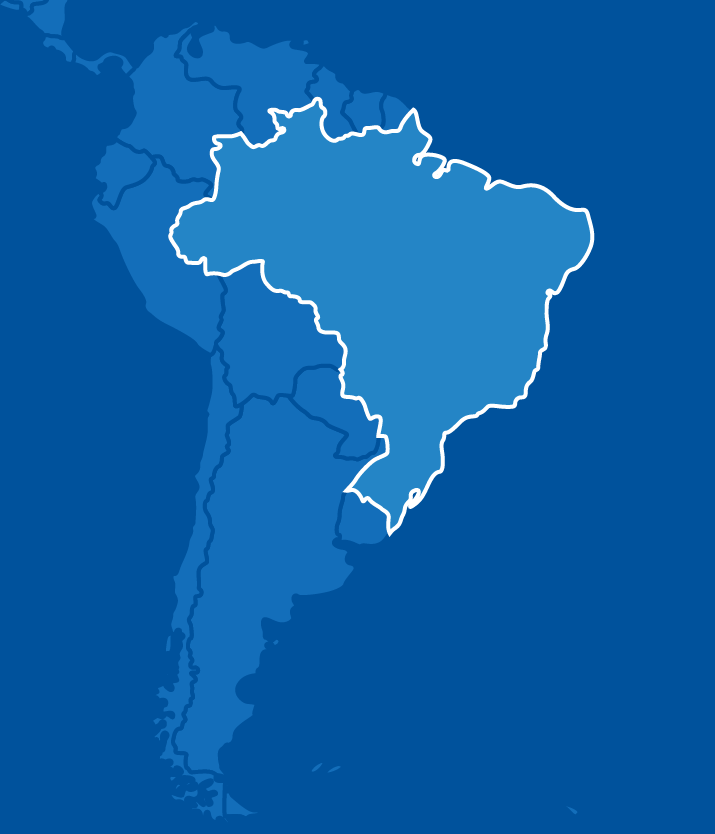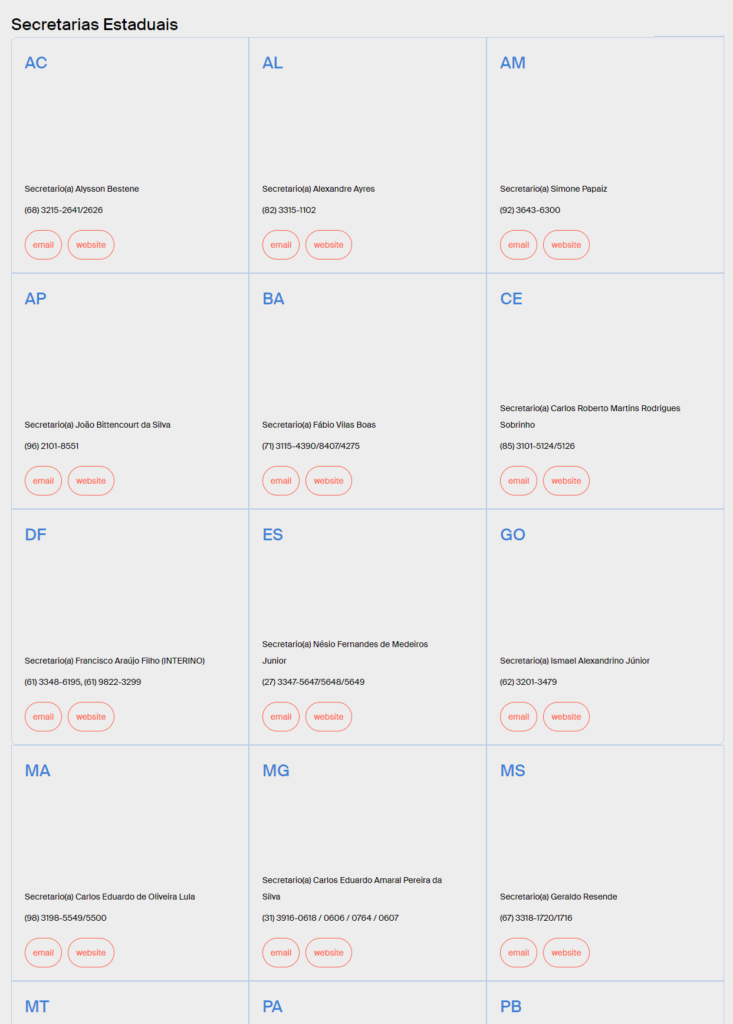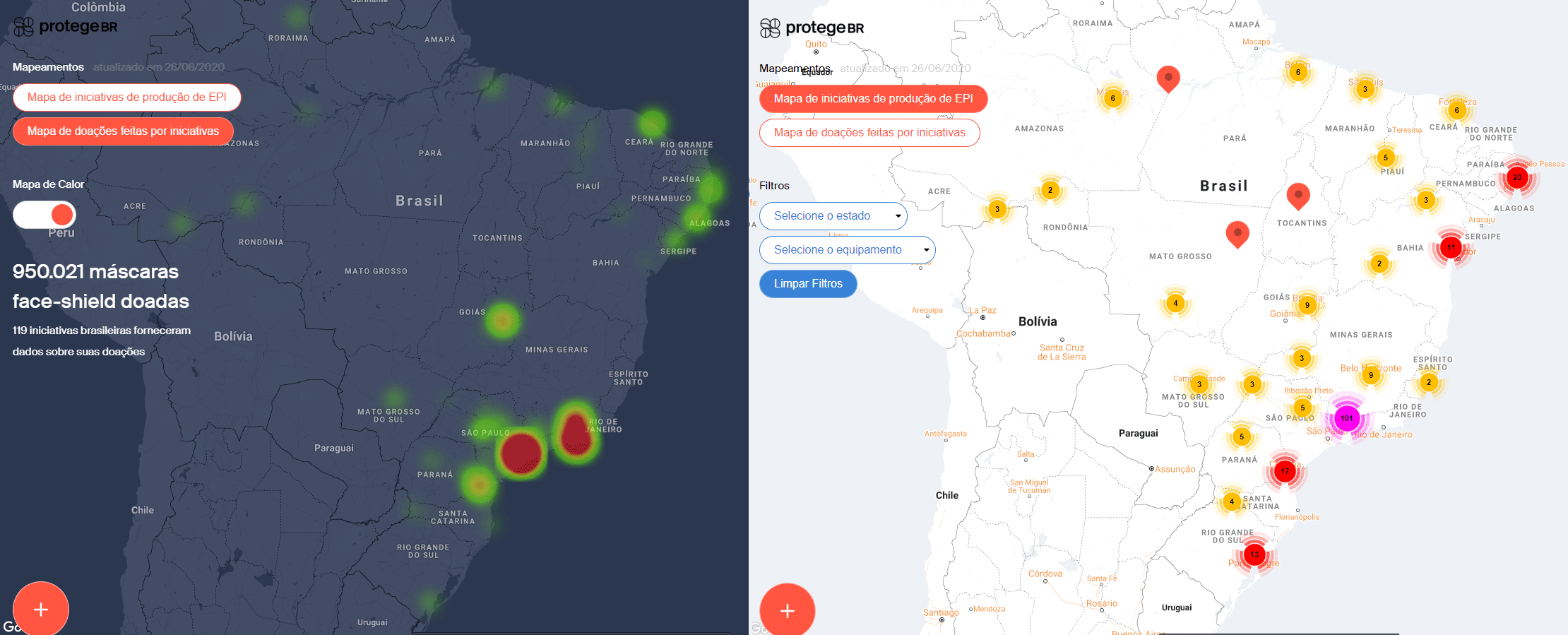OSMS has studied how maker communities of different countries individually responded to the crisis. We explored how they solved problems specific to their geography, society and other factors. We provide the resulting insights in the form of individual national case studies for free, vetted for accuracy by the respective national maker communities. These case studies serve as a blueprint for maker groups in countries that want to establish or improve nation-scale coordination.
History

Image: OSMS
Brazil has a population of 209 million people. As a country, it has been faced with issues specific to its developing infrastructure during the Coronavirus pandemic. High concentrations of favelas throughout Brazilian cities pose a different threat to its inhabitants than the neighborhoods of cities in more wealthy nations.
Many citizens in these communities lack basic necessities like access to clean water, adequate food supplies, and proper communication channels, often lacking access to the internet. Many poor people in Brazil are informal workers that lack access to bank accounts, economic impact payments and other support structures, further making the infrastructure issue a major stumbling block. The economic impact payments by the Brazilian government were spotty and delayed in their distribution; they totaled about $100 per person, for those that actually received them.
Additionally, the Brazilian national government has been rather uncooperative in supporting lockdowns and national efforts to prevent the spread of coronavirus, often spreading misinformation about the virus itself.
For example, the minister of health was replaced in succession multiple times since the outbreak of the pandemic, and Brazil’s president Bolsonaro called COVID-19 “no more than a simple flu” on national TV. Therefore, one of the biggest challenges for Brazil is supporting the spread of reliable information about the virus to its most vulnerable populations.
Groups such as the Mare Mobilization Front, representing the Complexo de Mare – a group of 16 favelas in Rio de Janeiro – work to broadcast information via flyers, wall murals, and loudspeakers throughout the favelas, encouraging good hygiene and awareness of the threat of Covid-19. Additionally, they supervise the distribution of food and donated hygiene articles which are especially important as many citizens do not have the resources to be able to self-isolate for a long period of time. According to a survey by Data Favela, 72% of favela residents in Brazil will run out of money after just one week of social isolation.
Due to these other pressing concerns, Brazil’s maker movement has therefore had more challenges in its growth than other countries which had the advantage of being able to build on top of solid infrastructure.
Even without strong centralized national coordination, dozens of local networks of makers have produced PPE throughout Brazil since March 2020. These networks were mostly based out of universities and existing FabLabs and Makerspaces, regionally coordinating through WhatsApp groups.
People behind the design department of PUC University Rio, led by professor Jorge Lopes who had extensive experience in the medical field, established a network among universities, industry federations and private citizens. The main objective of this early network was to develop, assess, produce, and distribute PPE and medical devices to Rio de Janeiro’s hospitals and institutions. The designs were validated by the Federal University Hospital.
Some products were used directly – or with little modifications – from their source, like Prusa Faceshields and FormLabs swabs, and others needed a complete redesign, like protection goggles (now in the OSMS library), video laryngoscopes and hard shell respirators as N95 replacements, in part under the research leadership of Prof. João Azevedo. The university then invited local makers to join their lab through the SOS3DCovid initiative. This program ran from March 26th to July 17th, producing 27,000 face shields and 3,500 goggles.
Through the Olabi maker network, SOS3DCovid sparked the Cuid4r initiative by Stephanie Kamarry on the other end of Brazil; they used PUC’s design files and produced 5,000 face shields as well as built CPAP Masks.
Another early and independent collaboration was Atitude 3D. Starting on March 25, it quickly pulled together volunteers around makerspaces and coordinated through WhatsApp. This effort yielded 37,000 face shields; much of it produced in 3D printing, and some of it through injection molding.
As these groups grew over the months and cross-organizational communication increased through WhatsApp groups, it was clear that a national effort would be useful. However, the early organizations all focused on solving local PPE issues, and none took on the responsibility of unifying the Brazilian maker movement for the purpose of coordinating distribution nationally.

Image: ProtegeBR
ProtegeBR, Brazil’s national movement, was created by Gabriela Agustini and Silvana Bahia on top of their existing organization Olabi, a makerspace in Rio de Janeiro, in May 2020.
Protege BR started informally as a voluntary action by Olabi members, responding to requests from makers from different parts of the country who started asking for contacts from health agents, project files, openings, contacts for donations, etc.
As the social organization, linked to the global network of FabLabs, has been working since 2014 with technology production across the country, many groups sought them out in search of contacts, information and connections. After some informal period of achieving good results, such as providing material donations to maker groups and converting a small clothing factory for the production of hospital gowns, the organization decided to scale op and coordinate efforts nationally.
Google.org, which was already a donor to the NGO, supported the idea of organizing information, mapping ongoing initiatives and connecting them together and gave Olabi a grant to stand up Protege.BR.

Image: ProtegeBR
ProtegeBR is primarily a tracking system to help connect smaller maker networks throughout Brazil. They track initiatives and connect people with existing networks in their local region, providing open-source resources for those looking to get involved with the movement.
ProtegeBR was born in May, and has since mapped/coordinated about 250 initiatives nation-wide and tracked 1 million + devices made to date.
It has also mapped 108 public health offices throughout Brazil and serves their contact information – email, phone, website and contact person – publicly to makers.
Management /Reporting Structure
The national organization is a communication base for people to see where initiatives have already been started and the regions that lack makerspace networks. Additionally, the organization encourages members to contact local healthcare centers directly to better understand their specific needs and the best way to get involved. Unlike CoronaVirusMakers (Spain) or Makers vs. Virus (Germany), ProtegeBR provides needed information nation-wide for people who are looking to solve PPE issues in their region.
For makers, Protege provides a map with contacts of 250 Brazilian citizens’ initiatives working in the production of medical supplies in the 27 states of the country; organizes the contacts of the state health departments of the 27 states and the main cities; and provides cured and checked information around production of PPE and make available validated files from open source projects of face shields, protective glasses, ventilators, alternatives to N95 masks, intubation boxes, masks, gowns, and laryngoscopes.
From the platform, the team behind ProtegeBr connects similar projects in weekly Zoom calls and promotes cooperation between them; it facilitates member-driven matches but doesn’t do matchmaking work or supply chain management directly.
Data Management
ProtegeBR keeps track of data as it is reported by the smaller initiative networks. As a start, the only data that was requested was face shields; 119 out of 250 groups were making face shields and gave ProtegeBR that data. As of now, the total is about 950,000 face shields donated by the associated initiatives. The data is recorded and added to a sleek national map with localized production numbers that allows individuals to see where the greatest concentration of makers are. Currently, the national initiative is tracking total numbers of items produced as well as donated, with plans to expand. While no time-based data is available yet, Protege is working on integrating the more detailed local numbers which are time-based, i.e. allowing to track production volume over time, and also include other categories of supplies..

Politics & Enablers
Since the beginning of the pandemic, the Brazilian national government has been unresponsive to the needs of its citizens and its makers. The networks that have been set up have been operating completely outside of any national program, but are collaborating with some regional governments (i.e. Curitiba’s FabLab collaboration with local government, led by Auro Nakatani). Also notable, the entire state of Maranhao, in Brazil’s northeast, supported local makers and sponsored them.
Many makers have also received support from public universities (both state and federal) in terms of workspace, funding, information and machinery.
Funding
Most of the money that is raised is through private and corporate donations that are directed to specific local initiatives that can be located through ProtegeBR.
Many local initiatives are funded by local governments (as mentioned, the city of Curitiba and the state of Maranhao), as well as businesses and private donations.
To guarantee that makers would be able to contribute to the virus-fighting efforts, the Government of Maranhão made R$ 200,000 available (two hundred thousand reais, approx. USD $37,000) at the beginning of the pandemic. This resource is being used for the purchase of new 3D printers, high production laser cutting machines and materials, such as acetate, filaments and others.
Links & Press
- https://protegebr.org/
- https://mapafaceshields.herokuapp.com/
- https://www.un.org/en/coronavirus/brazil%E2%80%99s-favelas-organize-fight-covid-19
- https://www.olabi.org.br/
- https://wikifavelas.com.br/index.php?title=Mobilization_Front_Mar%C3%A9
- https://www.bandab.com.br/cidades/fablab-de-curitiba-ganha-reforco-de-impressoras-3d-para-producao-de-mascaras-escudo/
- https://www.sos3dcovid19.com.br/
- https://www.instagram.com/cuid4r/
- http://www.atitude3d.com.br/
Read Further Case Studies
Germany
Germany demonstrated resilience through a decentralized network of 180 regional maker hubs that coordinated among 7,000+ makers to produce hundreds of thousands of PPE supplies during the COVID-19 outbreak.